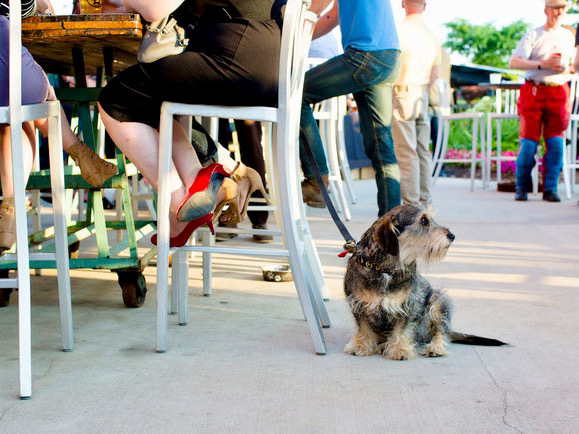Sometimes new ideas spread quickly. Sometimes they take forever. Here’s one I’d like to speed up.
For decades, the accepted approach to training dogs was "dominance theory." Dog trainers told us that if we didn’t dominate our dogs, they would dominate us. The way to teach them to sit, stay and everything else we need them to do was, we were told, to jerk hard on the leash, using a collar that hurt them when we did it; to roll them over or growl at them; to frighten them with loud noises; to force them to endure scary situations; and so on.
Many, many professional trainers still use techniques like this. You even see some of them on TV.
Let’s stop. Negative training doesn’t work for most people; it always makes dogs sad and often makes behavior worse; and it ruins the friendship that was the reason you got a dog in the first place.
Harsh training doesn’t work
Research is mounting on this. A 2008 study of dogs being trained for the Belgian military found that the more harsh methods were used, the worse the dog performed. Researchers at the University of Pennsylvania found in 2009 that aggressive training methods actually caused aggressive reactions. And once you’ve seen it go wrong in a dog, you’ll just know it. I’ll never forget a trainer in the early 1990s cuffing my big terrier repeatedly under the chin while she stared coldly into his eyes. No wonder he growled. It was a long time before I learned enough to understand that she was wrong (and mean) and my dog was right.
Dominance is more of a human thing
Why doesn’t harsh training work? Because the whole "dominance theory" thing is wrong, at least the simplistic version that harsh training is based on.
Dogs come from wolves, old-style trainers tells us, so they must want a pack leader like wolves – even though dogs don’t act like wolves in lots of other ways, and even wolves don’t fight for dominance the way most people imagine they do. The whole wolf/dog/dominance idea seems to make sense, except that it’s wrong. Researchers in England observed freely acting dogs for long periods and found no evidence of a dominance hierarchy.
If you doubt the research, just look over at your dog right now. She’s chasing an ice cube, staring at your bagel, or hiding from the vacuum cleaner. If you can tune out the "experts" for a minute, you’ll trust your instincts; dominating you is the last thing on your dog’s mind. (I don’t know of research explaining why we believe dogs want dominance when they don’t. I suspect it’s because humans think a lot about dominance, so we project it onto other creatures.)
A better way
So what can you do to help your dog live calmly and happily in the world, a friend to people, other dogs, and you? Find a positive trainer. There are lots of them now – the word on positive training has been out in the training world for years. In Milwaukee, the Wisconsin Humane Society and many other shelters and private trainers offer both classes and individual consultations.
It can be hard to tell someone’s philosophy from a web site, but start by looking for membership in the Association of Pet Dog Trainers, which rejects confrontational training methods. Then talk to others who have used that trainer. And once you start, if you see a prong collar or a leash jerk, leave. Your dog is your friend. You wouldn’t do that to a friend.
(P.S., Adorable Toby, at our Ozaukee campus and in the picture, would love some positive training at your house. Learn more about him here.
Anne Reed became the Executive Director of the Wisconsin Humane Society in January of 2010. Before joining WHS, Anne spent almost three decades as a corporate litigator at the Milwaukee law firm of Reinhart Boerner Van Deuren SC.
At the Wisconsin Humane Society (WHS), Anne stepped into the leadership of Wisconsin's oldest, largest and most recognized animal welfare organization. For more than 130 years, WHS has been saving the lives of animals in need, and carrying out its mission to build a community where people value animals and treat them with respect and kindness. WHS helped to pioneer the idea that every animal available for adoption in a shelter could be free of time limits, taking as long as needed to be adopted. WHS operates shelters in Milwaukee, Saukville and Racine.
Anne serves on the board of directors of the National Federation of Humane Societies (NFHS), Wisconsin Federated Humane Societies, and Shelter Animals Count, a national database initiative. She also chairs NFHS's 2020 Vision Initiative. Anne also served as president of Meta House's board of directors from 2005 to 2007 and served on the board from 2001 to 2010. As a lawyer, she was named one of the Wisconsin Law Journal's "Women In The Law;" was named to the list of "Wisconsin Superlawyers," and authored a law blog which was twice named one of the 100 best in the country by the American Bar Association's ABA Journal.





